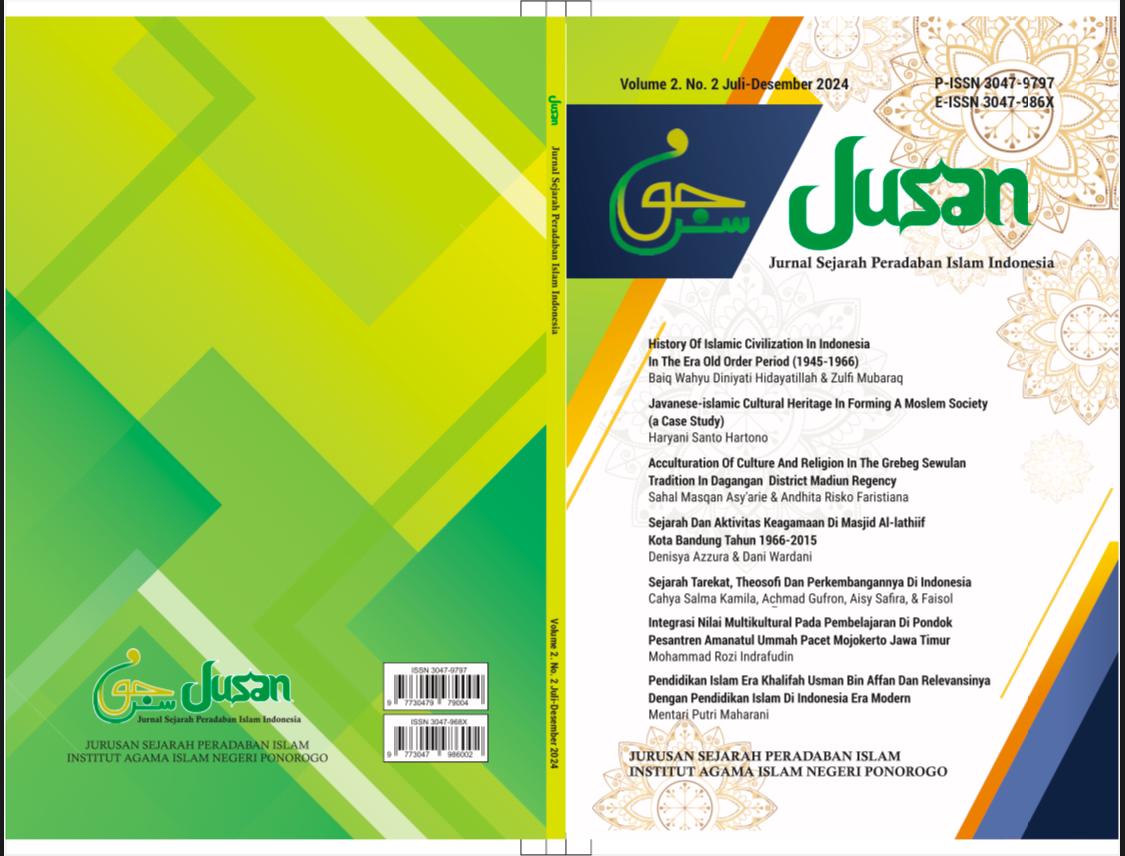JAVANESE-ISLAMIC CULTURAL HERITAGE IN FORMING A MOSLEM SOCIETY (A CASE STUDY)
Abstract
Based on ethnic population data, the Javanese are the largest ethnic group in Indonesia. The spread of the Javanese population throughout Indonesia occurs mainly due to transmigration activities, that is the movement of people from one densely populated area to another less densely populated area. Among the Javanese culture that is maintained in almost all areas of the overseas are language, art, spirituality, and philosophy of life. This research uses a qualitative descriptive method with case study approach. This study raises the study of Javanese Moslem society in Musi Rawas, a regency in South Sumatra. This research describes the form of existence of Javanese culture which does not only survive on the island of Java itself, but extends to all areas where there are people of Javanese descent. This study describes the extent to which the role of Islamic teachings that have been combined with Javanese culture in forming a Moslem society with good morals. A good and commendable personality, a norm that regulates the relationship between human beings, with God, and the universe.











